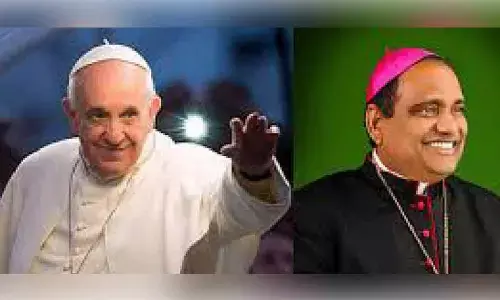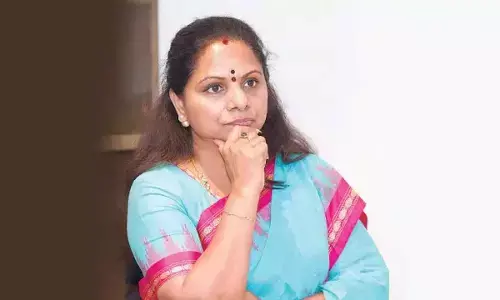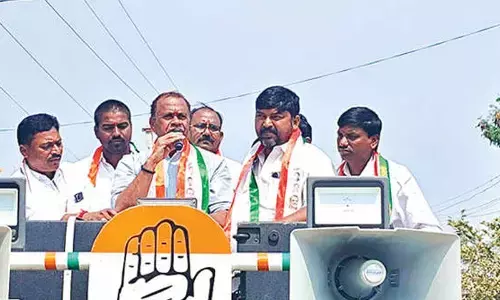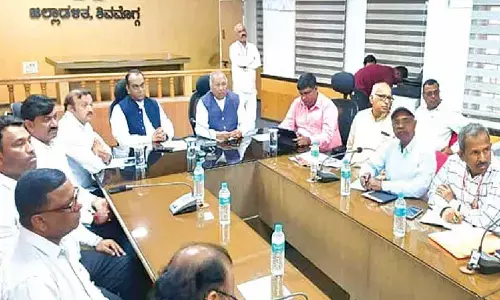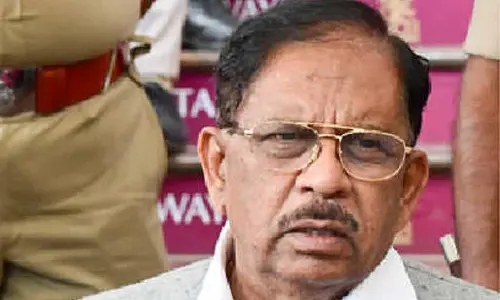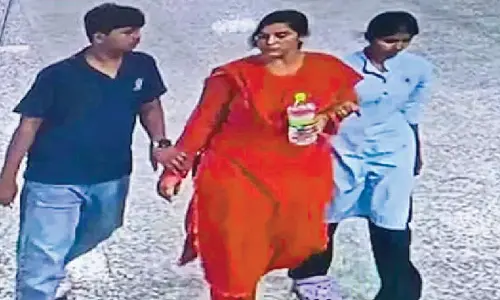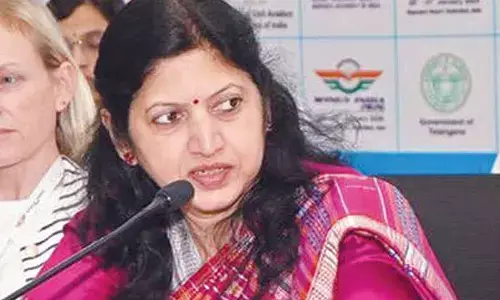Systemic graft is problem, not just GST

Systemic graft is problem, not just GST
I had expressed concerns five years ago that black economy will increase after the implementation of GST
I had expressed concerns five years ago that black economy will increase after the implementation of GST. The earlier system required a black marketeer to negotiate with three inspectors of Excise, Sales Tax and Octroi. The GST system requires him to make setting with only one GST inspector thus making it easier to undertake black transactions.
Businesses are engaging in such transactions because the GST officials are hugely corrupt. A parallel black economy has come into being. The businessperson buys raw material, electricity and labour; the transporter reaches the goods; and the shopkeeper sells those goods — all do this in black, outside the books. The government made the e-way bill system to be able to check whether tax has been paid on the goods during transit.
This has been circumvented. The e-way bill between Delhi and Ghaziabad provides a window of 24 hours. Businesspersons are transporting three or four consignments on the same e-way bill within that time. Secondly, they are under-valuing the goods.
A Hawaii chappal is billed at Rs 50 and GST is paid on Rs 50 while the actual price is Rs 200. The seller takes Rs 150 in cash from the buyer and saves tax on the amount. The government is planning to connect e-way bills with fastags so that the movement of the vehicles can be tracked. This will only open up yet one more source of corruption at the barriers. Black economy will continue to roll.
These black transactions cannot be controlled by reliance on technological solutions such as e-way bills. The purchase and sale of goods in cash can only be checked by inspectors. The use of same e-way bill to transport three consignments can only be checked by questioning the driver. The underpricing of the goods can only be controlled by an officer comparing the price with similar goods available in the market.
The government will have to control the corruption of the tax bureaucracy. The government has implemented a number of good measures in this direction. The most effective step has been to retire corrupt officials. However, the IAS officers are not willing to identify the corrupt among them.
We will have to think differently. Professor John Joseph Wallis of University of Maryland says that less bureaucratic corruption in the United States owes itself to the concern of the founding fathers with "representation, access, equity and fairness." The framers of the US Constitution wanted to empower the people against the tyranny of the government. An article in "World Development" reviewed the anti-corruption experiences with a focus on civil servants.
It found that anti-corruption organisations (such as our police and Central Vigilance Commission) are not effective while "corruption audit" is effective. The underlying premise is that corruption takes place by cooperation between the civil servant and the businessperson. Anti-corruption organisations can know of the corruption and become active only when there arises a dispute between the giver and taker of the bribe.
Ordinarily corruption does not even come into the radar of such organisations, let alone they control it. Audit, on the other hand, involves an official to proactively audit an office. We know that a common strategy adopted by civil servants is to sit on a file until their palms are greased. An auditor can uncover this by examining the time taken for disposal of files on a particular desk. Such an audit, however, would be fruitful only if it is undertaken by an external agency and not by the officials of the Comptroller and Auditor General of India that have been merrily overlooking the corrupt practices.
Professor Errol D'Souza of Indian Institute of Management, Ahmedabad, says that the role of the press and civil society is crucial in controlling corruption. I would add the judiciary. These organisations can flag corruption. The People's Union for Civil Liberties, for example, exposes the high-handed actions taken by the police officials.
The Fifth Pay Commission had said that its recommendations for increase in salaries of government employees should be implemented only with instituting an external evaluation of the Class "A" officers. The common thread in all these suggestions is the empowerment of independent persons — improving access of the people; corruption audit; empowering the press, civil society and judiciary; or external evaluation of officers. These are fundamentally different than the top-down measures such as retiring corrupt officials — that the government has been sincerely trying to implement and that have proven ineffective.
The difficulty in empowering independent oversight is that the empowerment also leads people raise questions about the policies and actions of the government itself — not just the corrupt officials. The enabling of people to bring a case against a wrong challan issued by the Road Transport Officer also enables the same person to question the Motor Vehicles Act. Or, the judiciary starts asking questions about the policies of the government.
It is for this reason that the governments, unlike that envisaged by the founding fathers of the United States' Constitution, are reluctant to improve representation of the people; institute corruption audits; empower the press, civil society and judiciary; or require external evaluation of officers.
On the contrary governments want to suppress the voice of these independent players so that they have a free unobstructed run. In the process, the capacity of these independent institutions to raise their voice against corrupt officials is impaired. If, for example, the government empowers the Truck Owners' Association to raise voice against corruption by the GST officials; the association also starts raising its voice against certain provisions of the Motor Vehicles Act.
The government cannot repair the system on its own from the top-down actions such as retiring corrupt officials. No wonder, one senior Minister in the UP government confided to me, "What to do? We have dismissed and suspended many police officers. But they just do not behave."
He should have sought the help of People's Union of Civil Liberties. Systemic reform can succeed only if the government acts from the top and the public acts from the bottom. One cannot hold the electric wire with only one arm of the pliers. The choice before the government, therefore, is either to live with corruption and lose its power altogether; or to allow the people to question its policies and maybe survive.
(The writer is formerly Professor of Economics at IIM, Bengaluru)








